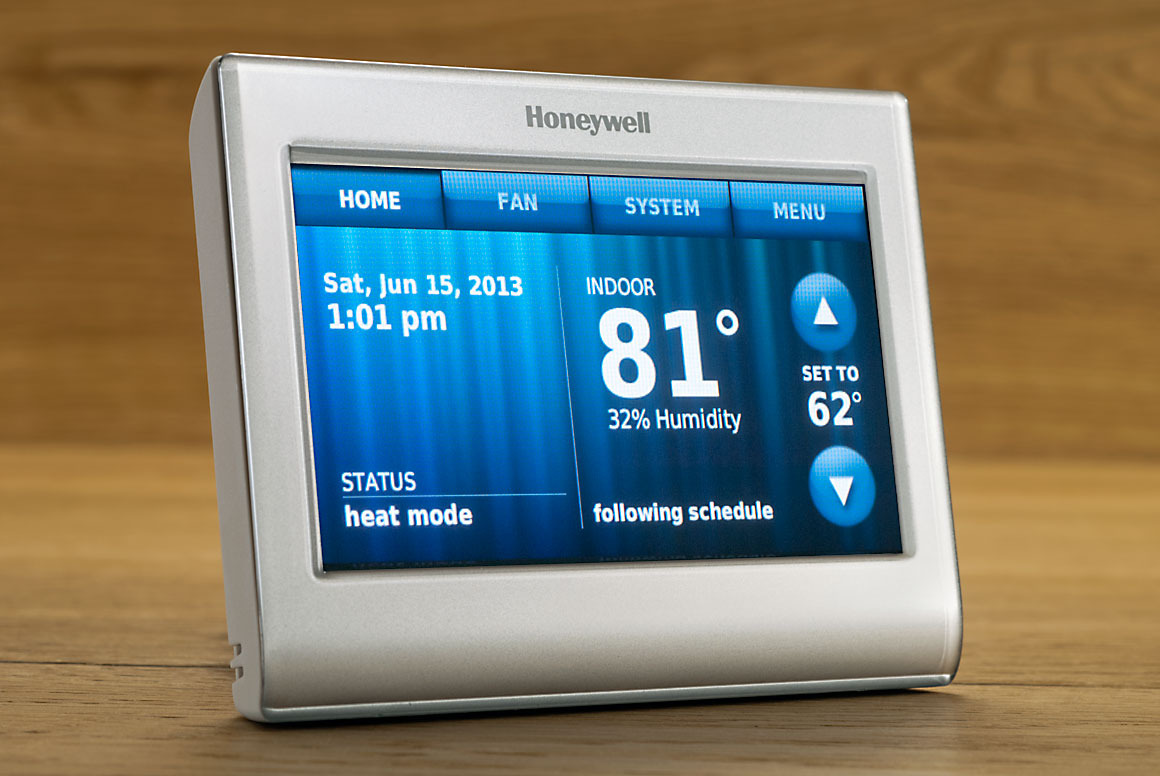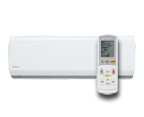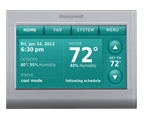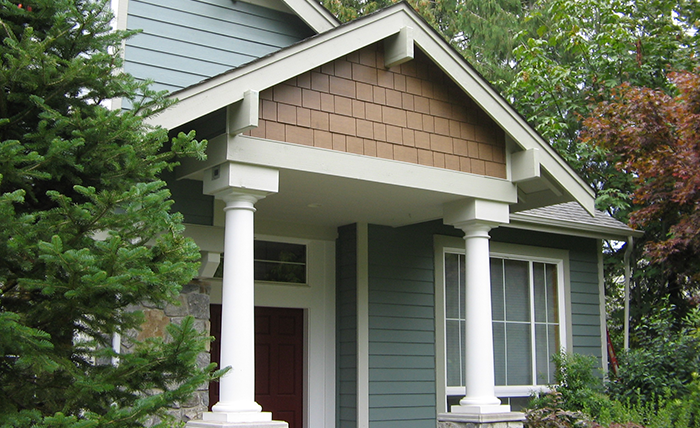
Seattle home show 2013 recap – top energy saving questions and answers
1. What is the benefit of a tankless water heater and is there an electric version?
Tankless Water Heaters provide endless hot water, also known as hot water on demand. They do not provide “instant” hot water. (That’s the job of a recirculating pump.) Tankless benefits include; endless hot water, running multiple hot-water-using appliances simultaneously, and long lifespan (20 years). It’s excellent for families, or where you want to run the dishwasher and shower at the same time.
If your water consumption remains the same, you can save about 15% on the cost of heating water vs standard tank. Gas and Propane tankless water heaters qualify for up to $300 in federal energy tax credit. There is such a thing as an electric on demand water heater. We do not sell or recommend them because they are energy hogs, and often require electrical panel upgrades.
2. What’s the latest trend in energy efficiency products?
High tech thermostats with remote control via cell phone are the latest trend in energy efficiency. These modern thermostats, such as the Honeywell Prestige, can be programmed so you can adjust temperatures when you are away and when you are on your way home. Even a few degrees lower for part of a day (when you aren’t home to suffer through it) can add up to energy savings. Or at least cover the cost for when you are home and want to crank it up.
3. Is a ductless heat pump right for my house or addition?
Heat pumps are energy efficient because they squeeze heat out of the air and send it into your house, and air is a free fuel. Ductless heat pumps give you the energy savings of a heat pump for homes with no ductwork. Typically that’s an electrically heated home, and you can save up to 50% off your heating bill. They provide quiet, super efficient electric heat, and as a bonus, air conditioning.
They work great in single family homes, and condos. If you have an underheated or undercooled area of your home, they can provide excellent spot heating and cooling. Or, if you have a home with electric baseboard or wall heat, they can replace that, and qualify you for rebates up to $1500.
For houses with oil or propane heat and central air (ducts), you have many options to significantly cut energy costs and ductless is only one of them. Since you already have ducts, it may be more cost effective overall to evaluate ducted heat pump options before choosing to switch over to ductless heating.
4. What is a home energy audit and what will be measured?
The official home energy audit of EnergyStar (EPA) is called Home Performance by EnergyStar. This is a comprehensive assessment is designed to pinpoint sources of high energy consumption, and health and comfort issues such as air leaks, insufficient insulation, moisture, defective ducts, gas leaks, ventilation, and inefficient lighting and appliances. Advisors thoroughly inspect, safety check, and evaluate all the components of the home, treating it as a completely integrated system, instead of just four walls and appliances. Tests include:
- Utility Bill Analysis
- Blower Door Test
- Infrared Scan
- Visual Inspection
- Insulation inspection
- Equipment Inspection
In most homes, the assessment procedure should take about two hours and create minimal disruption. A comprehensive assessment should provide you with a report, prioritized list of energy improvements and include a full “test out” conducted after all the improvements are installed. This will ensure the best results and ensure the safety of your home. We believe that you benefit most from a comprehensive audit vs a do it yourself one.
If you missed us at the show and have a question, or to sign up for a Home Performance by EnergyStar audit, give Washington Energy a call at 800 398 4663.
Related products
Suggested Reading
- 2016
- AC
- AC Installation
- AC Units
- AFUE
- air conditioing
- air conditioner
- air conditioning
- air conditioning maintenance
- air conditioning service
- air conditioning tune-up
- air duct
- air duct cleaning
- air handlers
- air pollution
- Air Purification System
- air purifier
- Air Sealing
- angie's list
- award
- basement Finishing
- Bathroom remodel
- BBB
- BBB Accredited Business
- before and after
- Best air conditioner
- best filters
- best generator
- best locks
- best water heater
- best window install
- boilers
- bryant
- Bryant AC
- bryant furnace
- bryant heat pump
- christmas lights
- clean air
- clothes drive
- Clothes For Kids
- coat drive
- combi-boiler
- comfort
- community
- Construction
- contractor
- contractors
- Cooling
- Cooling equipment
- Coronavirus Protection
- custom
- daikin
- deals
- discounts
- DIY
- Donation
- Donations
- door hardware
- door installation
- door replacement
- Door Transformations
- doors
- drafty home
- drain cleaning
- Duct Cleaning
- Duct Cleaning Services
- ductless
- Ductless heat pump
- ductless heat pump. mini-split
- Ductless heat pumps
- ductless heating system
- ductless heating systems
- ductless installation
- Ducts
- earth day
- eco friendly
- EER
- election
- electrical inspection
- emergency
- energy
- energy conservation
- energy efficiency
- energy efficiency rebates
- energy efficient AC
- energy efficient air conditioner
- energy efficient home
- energy efficient hvac
- energy efficient HVAC Systems
- energy efficient windows
- energy myths
- energy saving
- energy saving home products
- energy star
- energy tax credit
- environmentally friendly
- exterior doors
- fall
- fall weather
- fiber cement
- fiberglass doors
- filter
- filter change
- financing options
- fireplace
- fireplace insert
- fireplace repair
- fireplace tune-up
- front door
- furnace
- furnace filters
- furnace install
- furnace maintenance
- furnace mileage
- furnace problems
- furnace replacement
- furnace service
- furnaces
- Garage door replacement
- gas fireplace
- gas fireplace inserts
- Gas Fireplace Makeover
- gas furnace
- generators
- going green
- good business practices
- green solutions
- Guardian Maintenance Club
- heat
- heat pump
- heat pump installation
- heat pump maintenance
- heat pump vs ac
- Heat Pumps
- heat pumps maintenance
- heat wave
- Heating
- Heating and Cooling equipment
- heating and cooling systems
- Heating Brands
- Heating Control
- Heating equipment
- Heating System Tuneup
- heatwave
- HEPA filter
- history
- holiday
- home
- home buyer
- home energy
- home energy efficiency
- Home energy efficiency solutions
- home exterior
- home heating
- home improvement
- Home Improvement Rebates
- home improvement repair
- home inspection
- home maintenance
- home maintenance checklist
- home maintence
- home performance
- home protection
- home repair
- home safety
- home upgrade trends
- home upgrades
- home value
- homeowners
- honeywell
- hot water
- hot water heater
- houzz
- how to
- HVAC
- HVAC Contractor
- HVAC Contractors
- hvac system
- IAQ
- indoor air quality
- infographic
- install
- install furnace
- insulation
- intellihot
- interior doors
- kids
- Kitchen face lift
- LED light
- LED lights
- light bulb
- light bulbs
- locks
- mailbag
- maintenance
- march
- membership
- mini-split
- modulating furnace
- money saving
- money savings
- navien
- new door installation
- new home
- New homeowner
- new windows
- news
- pacific northwest weather
- patio doors
- pets
- plumbing
- plumbing inspection
- power
- power outages
- precision tune up
- preventative
- Pro Tips
- Programmable Thermostat
- Programmable Thermostats
- propane
- PSE Award
- PSE Energy
- PUD
- Q & A
- Ratings
- rebates
- refund
- REME Halo
- Remodel
- remodeling hacks
- Replacing Heating System
- reputation
- Safe Home Insulation
- sale
- save energy
- Saving money
- scam
- scams
- seattle
- Seattle Weather
- SEER
- service
- services
- Siding
- Siding replacement
- sliding glass doors
- Smart Home
- Smart thermostat
- smoke
- Solar Attic Fan
- solar power
- Solar Powered Light Strand
- sound
- spring
- standby generators
- storm doors
- summer
- summer fires
- Summer heat
- Summer home
- super service 2016
- tank water heater
- Tank water heaters
- tankless tune ups
- tankless water heater
- tankless water heaters
- tax rebate
- thanksgiving
- Thermostat
- tips
- trends
- tune-up
- upgrade
- upgrade cooling
- upgrade heating
- utilities
- utility rebates
- veterans
- Washington Energy
- washington energy services
- water conservation
- Water Heater
- water heater installation
- water heater maintenance
- water heater repair
- water heaters
- water leak protection
- Wildfire Season
- wildfire smoke
- window
- window energy efficiency
- window install
- window maintence
- window remodel
- window repair
- window replacement
- windows
- winner
- winter
- zone heating
- Air Conditioning
- Air Purifiers
- Cooling
- Doors
- Ductless heat pump
- Environmental
- Fireplace
- Furnace
- Gas fireplace
- Generators
- Heat pump
- Heating
- Home improvement
- How to
- HVAC
- Indoor Air Quality
- Insulation
- News
- Plumbing
- Rebates
- Seattle
- Siding
- Smart Home
- Tank water heaters
- Tankless water heaters
- Tips to save money
- Uncategorized
- Wildfire Season
- Windows



